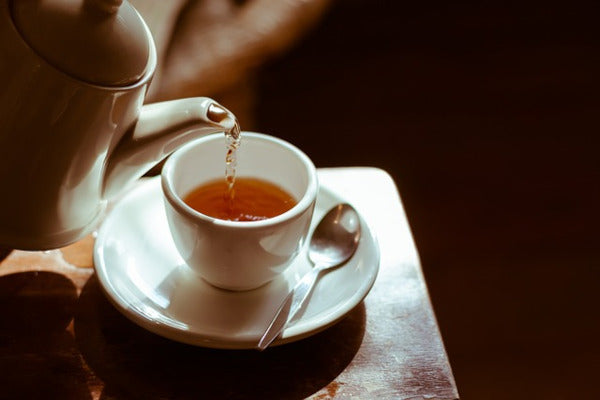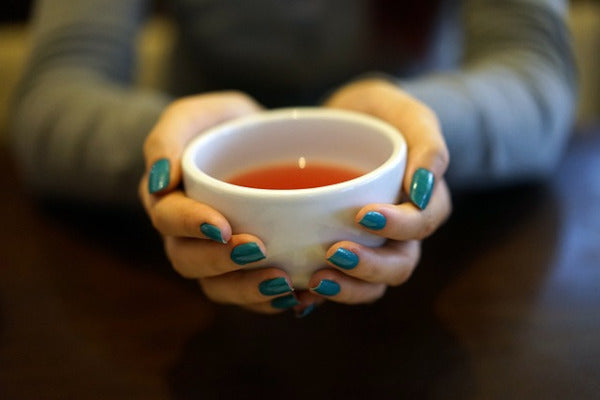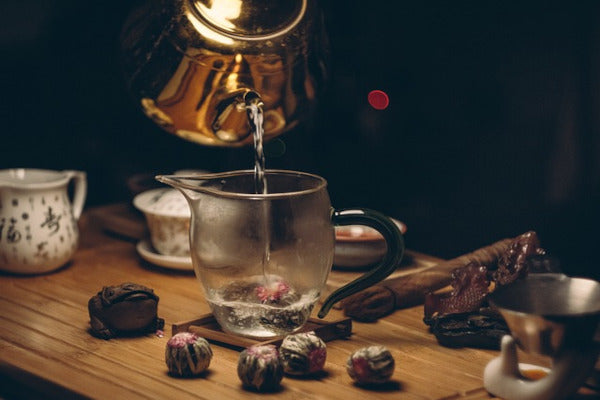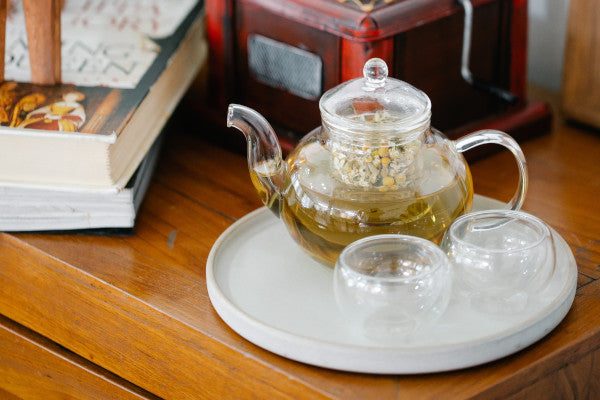The raspberry is a shrub in the Rosaceae family and is part of a widespread and well-known group of several hundred species native to Asia, Europe, and North and South America. It can be found throughout the Northern Hemisphere. The fruits are sweet and fragrant with a subtle acidic aftertaste. Although the most common type is pinkish red, they can be found in many colors: black, purple, orange, yellow, and white. We invite you to learn about the uses and benefits of raspberry leaf infusion.
Benefits of Raspberry Leaf
Raspberries were harvested by the Trojans and the inhabitants of the slopes of Mount Ida in the time of Christ. Seeds have been found in Roman forts in Britain, indicating that they were probably the ones who spread the crop throughout Europe.
The British popularized and improved the plant during the Middle Ages, and by 1771, they had already exported it to New York. The black raspberry, native only to eastern and central North America, wasn't cultivated until the 19th century. Native to the Indians, they used it as a purple and dark blue dye and cooked the new shoots.

Medicinally, raspberry was used as an astringent, cathartic, ophthalmic, pectoral, and ointment. The entire plant was used to combat various ailments; for example, a decoction of the roots, stems, and leaves was used to treat whooping cough. The root was chewed as a treatment for colds and toothaches; and an infusion of the astringent root bark was used to combat diarrhea and dysentery.
At Tetique, we're passionate about offering healthy and delicious options to our customers. We're also suppliers of herbal teas . In addition to tea, we also offer a variety of fruit infusions that are a perfect choice for businesses in the hospitality, cafe, and restaurant sectors.
Our fruit infusions are natural and made with the highest quality ingredients, ensuring a unique and satisfying flavor experience. We offer options such as chamomile, mint, ginger, and raspberry, among others.
If you're looking for a healthy and delicious option to offer at your business, don't hesitate to consider our fruit infusions. We're sure your customers will appreciate the variety and quality of our offerings.
How to prepare Raspberry Leaf Infusion
Place 30 g of dried raspberry leaf herb in a teapot and pour 3 cups (about 600 ml) of boiling water over it. Cover the teapot and let it steep for 15 minutes. If you don't want to brew a whole teapot, an alternative is to add 1 heaped teaspoon of organic loose leaf tea (10 g) to a cup of boiling water.
Raspberry Leaves in Pregnancy
As for raspberry leaf tea during pregnancy , prepared as an infusion, raspberry is the best-known, most widely used, and safest of all herbs during pregnancy. Most of the benefits attributed to consuming raspberry leaf infusion during pregnancy are due to the high amount of vitamins and minerals it provides.

In addition, raspberry leaves contain an alkaloid that helps tone the muscles of the pelvic region, including the uterus itself. Of particular interest is their concentration of vitamin C, vitamin E, iron, and calcium, and in smaller amounts of vitamin A, vitamin B, and complex minerals, including phosphorus and potassium.
In an Australian study, nearly 200 (first-time) mothers were randomly assigned to receive either a 1.2 g raspberry leaf tablet or a placebo (a placebo is a tablet with no therapeutic function) twice daily beginning in the 32nd week of pregnancy. The herb produced no harmful effects on either mothers or babies, and women taking the raspberry leaf treatment were found to have a shorter second stage of labor and a lower rate of forceps delivery (19.3% vs. 30.4%).
Contraindications of Raspberry Leaves
Although raspberry leaves are generally considered safe, there is some controversy regarding their use during early pregnancy, so if you are pregnant, you should only drink this infusion after week 32. If you plan to use raspberry leaf infusion during pregnancy, choose an organic, chemical- and pesticide-free product to reduce your baby's exposure to toxins. Due to their high magnesium content, raspberry leaves may cause a mild drop in blood pressure. As always, consult your doctor before starting treatment with raspberry leaves.
Benefits of Raspberry Leaf Tea or Infusion
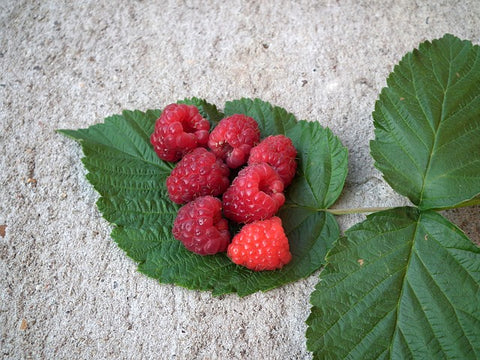
The benefits of raspberry tea are numerous. Raspberry leaves contain polypeptides, antioxidant flavonoids, and tannins. The fruits contain significant amounts of antioxidant polyphenols such as anthocyanin pigments, which may protect against various diseases.
Raspberry leaves to relieve diarrhea
Raspberry leaves are proven to be rich in astringent tannins, which is why they can help relieve the symptoms of mild diarrhea. A study by the University of Maryland Center for Medicine recommends drinking a cup of the infusion every half hour until symptoms subside, and adding mint leaves is recommended for even better results.
Relieve premenstrual syndrome and regulate the menstrual cycle
While there is no scientific evidence that raspberry leaf tea relieves PMS symptoms or reduces menstrual bleeding and cramps, some women have reportedly reported relief from this home remedy, as raspberry leaves contain a substance that helps tone the uterine muscles.
Raspberry leaves to get pregnant
Due to the relaxing effects this raspberry leaf infusion has on the muscles of the uterus, it can aid ovulation and thus promote conception.
To induce labor
Many alternative practitioners and midwives recommend that women drink raspberry leaf tea just before and during labor to help induce contractions and deliver the baby more quickly and easily.
In addition to Raspberry Leaf Infusion , there are many other fruit infusions that can be a delicious and healthy option to enjoy at any time of day. Some of the most popular fruit infusions include Red Berry Infusion ,Piñá Colada , and Fruit with Cocoa and Cherry.
These are just a few fruit infusion options you can enjoy. There are many other varieties available on the market, each with its own properties and benefits. Whether you prefer a hot or cold infusion, you're sure to find an option that suits your tastes and needs.



